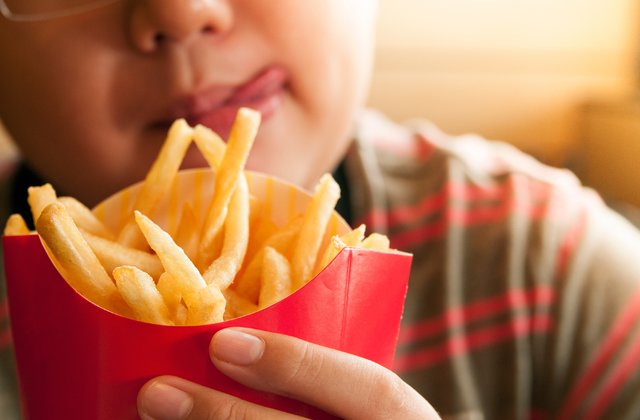
Wondering why depression and overeating are connected?
Who hasn’t felt like a glutton after Thanksgiving dinner? You’ve just stuffed your stomach with turkey, mashed potatoes, and pumpkin pie galore. And the weeks following Thanksgiving aren’t much better.
Over the summer holidays and leading into the winter holiday season with colder weather, you’re faced with an abundant supply of cookies, goodies, heavier meals, eggnog, and alcohol.
Many people gain a couple of pounds over the holidays, but they’re nothing some exercise and a cleaned-up diet can’t undo. Others experience food in a much different way. Not only is their willpower tested by overwhelming amounts of delicious food, but they’re also coping with a roller coaster of emotions. For them, overeating isn’t just a one-day event.
Overeating is either a result of underlying depression or a precursor to it. Eating alone while watching TV, eating again while working remotely from the computer with food hidden off to the side of the desk, and eating just to eat.
In these cases, knowing about the relationship between depression and overeating is crucial to finding the right treatment.
What Is Binge Eating Disorder (BED)?
In the U.S., about 3.5% of women and 2% of men suffer from binge eating disorder. It’s characterized by frequent episodes of excessive eating. More specifically, it’s defined by quickly consuming a large number of calories that would take most people two hours to finish. Binge eating can be diagnosed when at least three of these symptoms are present:
- Having large amounts of food very quickly
- Eating until you are uncomfortably full
- Snacking throughout the entire day with a focus on junk foods
- Continuously eating even after you feel full
- Eating by yourself to hide the amount of food you’re consuming
- Feeling disgusted, depressed, or guilty after overeating
The effects of Binge Eating Disorder can range from obesity to high cholesterol. In fact, two of every three people who have this condition are classified as obese.
Another glaring friend to binge eating disorder is depression.
Depression and Overeating: Which Comes First?
Depression can take hold in many forms. It can zap your energy, cause you to be irritable, and even alter your appetite. In some cases, depression significantly suppresses hunger. For other people, persistent sadness can induce binge eating.
One study found that a specific group of US Iraq and Afghanistan Veterans who expressed signs of depression and PTSD also showed a tendency to binge eat. The researchers concluded that the psychiatric conditions of this group led them to become overweight or obese.
But why?
People with depression seek different tactics to shake those feelings of sadness. To boost your mood, you start munching. When a couple of bites of food don’t suppress your feelings, you keep reaching for more with the hope that some amount will bring you satisfaction. Before you know it, you have overeaten. This same tendency can also be found in children who are experiencing changes in their environment whether it be the home or at school.
If your depression is not properly treated, these episodes can happen again and again.
On the other hand, it could be that an eating disorder develops first. As mentioned earlier, binge eating can result in depression because compulsively eating leads you to:
- Feeling like you lack control
- Guilty or regretful for eating too much at once
- Feeling disgusted with yourself
These feelings, along with emotional detachment or numbness, are what defines depressive overeating.
Another potential reason for depressive eating is the type of food you might eat during a binge eating episode. If comfort food is your go-to, you could be adding fuel to the fire. For example, a diet high in saturated fat and refined sugar reduces brain-derived neurotrophic factor.
That’s associated with memory and your ability to learn new things. Decreased BDNF may be a pathogenic factor involved not only in dementia and depression but also in type 2 diabetes.
Eating high-sugar foods can also mute your hunger signals. When your body can’t tell if it’s full or not, you’re likely to continue eating well past your stomach’s limit.
The Health Risks of Depressive Overeating
In addition to depression, there are a few serious health risks that come from binge eating. Some of these can be life-threatening if they’re not addressed.
1. Weight Gain or Obesity
Two-thirds of people with binge eating disorder are obese. Eating too much food in a short period is a surefire way to gain weight, especially if moderate exercise is not part of your regular routine.
2. Heart Disease
Heart disease often comes along with obesity. Extra weight on your body makes it more difficult for your heart to pump blood. Combine that with excessive visceral fat (belly fat), and you significantly increase your risk of heart attack and stroke. The nutritional value of the food you overeat can contribute to high cholesterol or high blood pressure as well.
3. Type 2 Diabetes
As with heart disease, the type of food you eat can raise your risk of type 2 diabetes. If your binge eating episodes feature more sweet things than celery sticks, you’re spiking your blood sugar levels and teaching your body to become resistant to insulin.
4. Unchecked Stress
Chronic stress can increase appetite and causes you to crave high-fat, sugary foods. Left to build up, you may not only eat too much, but face other health concerns, from headaches to poor sleep and more. Employing stress management strategies supervised by a licensed counselor to keep your tension and your overeating under control is the best possible option.
How to Treat Depressive Overeating
Depression and overeating can be treated as co-occurring disorders or by focusing on the underlying issue. If depression is causing you to binge eat, your depression should be treated first. If overeating continues after your depression is under control, then you may want to seek treatment for binge overeating disorder.
One of the most successful treatment for depression and overeating is Cognitive Behavioral Therapy.
Cognitive Behavioral Therapy
Cognitive-behavioral therapy can be helpful for both an eating disorder and depression. During your therapy sessions, you might discuss feelings about your body image, self-esteem, and perfectionism. Your licensed therapist will look for triggers that cause your depression and overeating, so they can teach you how to cope with them more effectively.
By improving your body image and self-esteem, you may feel relief from depression. As a result, your tendencies to binge eat may become less.
We are always here to help people residing in McKinney, Plano, Dallas, Denton, Allen, Garland, and the surrounding communities throughout Texas. If you believe that you are struggling with binge eating disorder brought on by depression and stress, or you know someone who may be experiencing these signs, we highly recommend that you reach out to our professional counselor team at Foundations Counseling.



